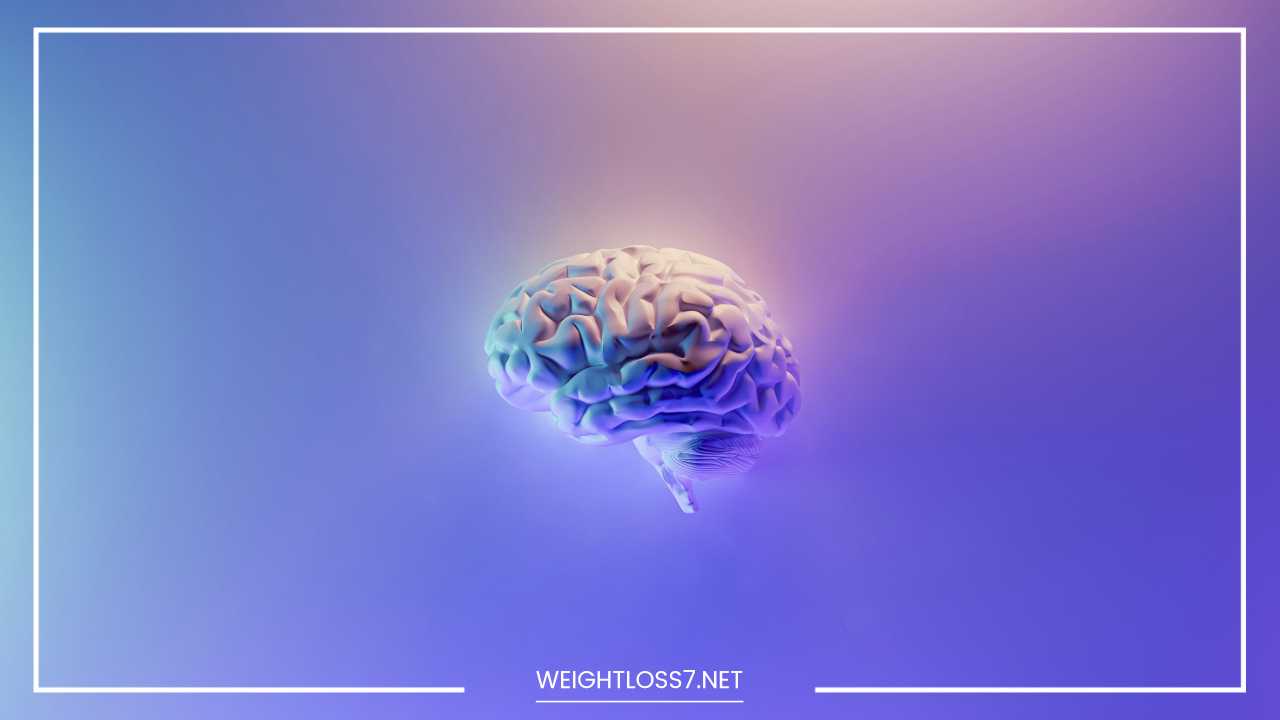Meningitis: Causes, Symptoms, Treatment & Prevention

Meningitis
Meningitis: A Comprehensive Look at the Inflammation of the Meninges
Meningitis, the inflammation of the meninges, the protective membranes that surround the brain and spinal cord, is a serious medical condition.
This inflammation can be caused by various infectious agents, including viruses, bacteria, fungi, and even parasites.
While viral meningitis is the most common form and generally less severe, bacterial meningitis can be a life-threatening emergency, potentially leading to brain damage, hearing loss, learning disabilities, or even death.
This blog post delves deep into the complexities of meningitis, exploring its various types, the underlying causes, the spectrum of symptoms, the diagnostic approaches, treatment options, and most importantly, preventative measures.
Unveiling the Different Faces of Meningitis
-
Viral Meningitis: As mentioned earlier, viral meningitis is the most prevalent form, accounting for roughly 80% of all cases. Enteroviruses, notorious for causing the common cold, are the most frequent culprits. Other viral offenders include adenoviruses, mumps virus, and herpes simplex virus. Thankfully, viral meningitis is usually mild, resolving on its own within a week or two.
-
Bacterial Meningitis: This form of meningitis poses a significant threat and necessitates immediate medical attention. Bacteria infiltrate the bloodstream and migrate to the meninges, causing severe inflammation. Streptococcus pneumoniae, Neisseria meningitidis, and Haemophilus influenzae type b (Hib) are the usual bacterial suspects. Despite prompt treatment, bacterial meningitis can leave lasting damage on the brain and spinal cord.
-
Parasitic Meningitis: This uncommon form arises from parasitic infestations, such as roundworms or tapeworms. The symptoms often mimic those of viral or bacterial meningitis, but diagnosis and treatment can be more challenging.
-
Fungal Meningitis: Another rare form, fungal meningitis, is caused by fungi and primarily affects individuals with compromised immune systems, such as those battling HIV/AIDS or cancer. Fungal meningitis presents diagnostic difficulties and can lead to serious complications.
Understanding the Underlying Causes of Meningitis
Viruses and bacteria are the primary culprits behind meningitis. Viruses spread through close contact via coughing, sneezing, or kissing.
Bacterial transmission can occur through close contact or contaminated food or water. Parasites and fungi are less frequent causes, but their presence can still trigger meningitis.
Recognizing the Signs and Symptoms of Meningitis
The symptoms of meningitis can vary depending on the causative agent and the severity of the infection. However, some common warning signs include:
- Fever: A high fever, often exceeding 102°F (38.9°C), is a hallmark symptom of meningitis.
- Headache: A severe headache, often described as the worst headache of one’s life, is another characteristic sign.
- Stiff Neck: Difficulty bending the neck forward due to stiffness in the muscles is a telltale symptom of meningeal irritation.
- Nausea and Vomiting: Nausea and vomiting are frequently experienced in individuals with meningitis.
- Confusion: Altered mental state, confusion, and disorientation can occur in meningitis cases.
- Seizures: Seizures, particularly in children, can be a manifestation of meningitis.
- Light Sensitivity: An aversion to bright light (photophobia) is sometimes observed in meningitis patients.
- Rash: While not always present, a rash can develop in some cases of meningitis, especially those caused by bacteria or meningococcus.
If you experience any of these symptoms, especially a combination of fever, headache, and stiff neck, seek immediate medical attention. Early diagnosis and prompt treatment are crucial for preventing serious complications from meningitis.
Diagnosing Meningitis: Unveiling the Culprit
Physicians diagnose meningitis through a combination of physical examination, detailed inquiry about symptoms, and specific tests.
A lumbar puncture, a procedure where a sample of cerebrospinal fluid (CSF) surrounding the brain and spinal cord is extracted, is a cornerstone of diagnosis.
The CSF is then analyzed for signs of infection, such as elevated white blood cell count, increased protein levels, or the presence of the causative agent itself. Additional tests may include:
- Blood tests: To assess overall health and identify potential bacterial infections in the bloodstream.
- Imaging tests: CT scans or MRIs may be employed to visualize the brain and spinal cord and rule out other causes of the symptoms.
- Electroencephalogram (EEG): This test measures electrical activity in the brain and can help identify complications like seizures.
Combating Meningitis: Effective Treatment Options
The course of treatment for meningitis hinges on the type of infection diagnosed. Viral meningitis often doesn’t require specific medication and resolves on its own with supportive care, including:
- Rest: Ample rest allows the body to focus its resources on fighting the infection.
- Fluids: Maintaining adequate hydration is crucial to prevent dehydration, especially with vomiting.
- Pain medication: Over-the-counter pain relievers can help manage headaches and discomfort.
Bacterial meningitis demands aggressive treatment with intravenous (IV) antibiotics to combat the bacteria directly. The specific antibiotic chosen depends on the identified bacteria and its antibiotic susceptibility. Treatment may also involve:
- Corticosteroids: These medications can help reduce inflammation around the brain and spinal cord, potentially minimizing long-term complications.
- Supportive care: Similar to viral meningitis, maintaining hydration and managing pain are crucial aspects of supportive care.
Parasitic and fungal meningitis require specialized medications tailored to the specific organism causing the infection.
Treatment can be prolonged and complex, often involving antifungal or antiparasitic medications delivered intravenously. Supportive care remains essential during this process.
Prognosis and Potential Complications of Meningitis
The prognosis for meningitis depends on the type of infection, the severity of the case, and the promptness of diagnosis and treatment.
Viral meningitis typically has a good prognosis with complete recovery within a few weeks. Bacterial meningitis, however, can lead to serious complications if not treated promptly. These complications can include:
- Brain damage: Inflammation can damage brain tissue, leading to learning disabilities, memory problems, or difficulty concentrating.
- Hearing loss: Damage to the nerves responsible for hearing can occur in some cases of meningitis.
- Seizures: Seizures can develop during the acute infection or persist as a long-term complication.
- Learning disabilities: Cognitive difficulties and learning problems can arise due to brain damage from meningitis.
- Hydrocephalus: A buildup of fluid in the brain can occur, causing pressure and potential neurological problems.
- Death: In severe cases of bacterial meningitis, especially with delayed treatment, death can occur.
Prevention is Key: Protecting Yourself and Your Loved Ones from Meningitis
Fortunately, several measures can be taken to prevent meningitis:
-
Vaccination: Vaccines are available to protect against some of the most common causes of meningitis, including meningococcal meningitis, pneumococcal meningitis, and Hib meningitis. These vaccines are recommended for children and adolescents at specific ages and for certain high-risk groups.
-
Good Hygiene: Frequent handwashing with soap and water, especially after using the restroom, before eating, and after being in public places, is a simple yet effective way to prevent the spread of germs that can cause meningitis.
-
Respiratory Hygiene: Covering your mouth and nose when coughing or sneezing helps prevent the spread of viruses and bacteria that can cause meningitis.
-
Avoiding Close Contact with Sick Individuals: If someone you know is sick with meningitis or a suspected case, it’s best to minimize close contact until they recover.
-
Safe Sex Practices: Practicing safe sex by using condoms can help prevent the spread of sexually transmitted infections that can, in rare cases, lead to meningitis.
Living with Meningitis: Support and Resources
If you or a loved one has been diagnosed with meningitis, it’s important to seek support and guidance. Here are some resources that can help:
- Meningitis Foundation of the Americas: https://musa.org/ This organization provides information, support groups, and resources for individuals and families affected by meningitis.
- Centers for Disease Control and Prevention (Meningitis): https://www.cdc.gov/meningitis/index.html The CDC website offers comprehensive information on meningitis, including causes, symptoms, prevention, and treatment.
- National Meningitis Association: https://nmaus.org/ This organization provides resources and support for those affected by meningitis and advocates for increased awareness and prevention efforts.
By understanding the different types of meningitis, their causes, symptoms, diagnosis, treatment, and most importantly, preventive measures, you can empower yourself and your loved ones to stay informed and protected from this serious illness.
Remember, early diagnosis and prompt treatment are crucial for optimal outcomes in cases of meningitis. Don’t hesitate to seek medical attention if you experience any concerning symptoms.
The Far-Reaching Impact of Meningitis: Beyond Physical Health
Meningitis, while primarily a physical illness, can have a profound impact on various aspects of a person’s life, extending far beyond the immediate medical concerns. Here’s a closer look at some of these far-reaching consequences:
-
Psychological Impact: The experience of meningitis can be incredibly frightening and stressful, both for the patient and their loved ones. The fear of complications, the discomfort of symptoms, and the potential for long-term effects can lead to anxiety, depression, and post-traumatic stress disorder (PTSD).
-
Cognitive Difficulties: Depending on the severity of the infection and the area of the brain affected, meningitis can lead to cognitive impairments. These may include problems with memory, concentration, learning, and processing information. This can significantly impact a person’s ability to perform daily activities, attend school or work, and maintain social relationships.
-
Social Impact: The social isolation that often accompanies meningitis can be quite challenging. The fear of transmitting the illness or the limitations imposed by fatigue and recovery can lead to withdrawal from social activities. This can be particularly difficult for children who may miss out on important social development opportunities.
-
Financial Burden: The cost of treatment for meningitis can be substantial, especially if hospitalization and long-term care are required. This can place a significant financial strain on individuals and families. Additionally, the potential loss of income due to missed work can exacerbate the financial burden.
-
Long-Term Care Needs: In some cases, meningitis can leave lasting neurological impairments that necessitate ongoing care. This may include physical therapy, occupational therapy, speech therapy, or even assistance with daily living activities.
Supporting Those Affected by Meningitis
For individuals and families grappling with the aftermath of meningitis, various resources and support systems can be invaluable:
-
Support Groups: Connecting with others who have been through similar experiences can provide a sense of community, understanding, and shared experience. Support groups can offer emotional support, practical advice, and a platform to share concerns and stories.
-
Mental Health Services: Addressing the psychological impact of meningitis is crucial for long-term well-being. Therapists can help individuals cope with anxiety, depression, or PTSD, and develop strategies for managing emotional challenges.
-
Vocational Rehabilitation: For those experiencing cognitive difficulties that affect their ability to work, vocational rehabilitation services can help them develop new skills or retrain for different jobs that better suit their current capabilities.
-
Financial Assistance Programs: Financial assistance programs can help alleviate some of the financial burden associated with treatment and ongoing care. These programs may be offered by government agencies, non-profit organizations, or patient advocacy groups.
-
Educational Support: Children who experience cognitive difficulties due to meningitis may require educational support services to help them succeed in school. This may include individualized education plans (IEPs) or access to special education resources.
Final Word
Meningitis is a serious illness with the potential for significant health consequences. However, with early diagnosis, prompt treatment, and access to the right support systems, individuals can overcome the challenges and lead fulfilling lives despite the long-term effects.
By raising awareness and promoting preventive measures, we can work towards reducing the incidence of meningitis and its associated burdens.

















